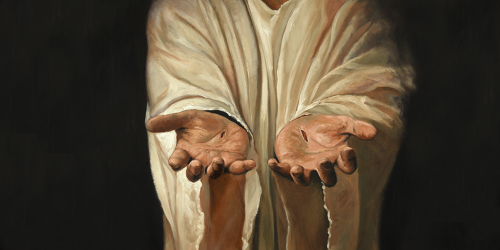Today is Thanksgiving in Canada. Although there are other influences, the roots of the Canadian Thanksgiving are in the Harvest Festival which we inherited from the English and European liturgical traditions. The Parliamentary legislation fixing the date of the holiday links it directly to thanksgiving to God for the harvest.
In the modern day many people have no direct connection to the soil or the production of food. But Thanksgiving remains a time of gratitude for all the blessings we enjoy, including many which we in the western world take for granted: water, food, shelter, healthcare and financial income.
Thanksgiving and gratefulness is a sometimes difficult but always important part of Christian life. Paul called on the Ephesians to be “always and for everything giving thanks in the name of our Lord Jesus Christ to God the Father.” In a book addressing the “atrophied contemplative faculty” of many in the modern world, Ronald Rolheiser wrote:
The first exercise we must do to restore our contemplative faculty to its full powers is to work at receiving everything – life, health, the people around us, love, friendship, food, drink, sexuality, beauty – as gift. Becoming a more grateful person is the first and the most important step in overcoming the practical atheism that besets our everyday lives.
(The Shattered Lantern, rev. ed., p. 167)
I have much to be thankful for in my own life, not least the material comfort and comparative wealth of living in the western world. But thankfulness should go beyond this to include gratitude for God’s steadfast love for us. I recently finished working through (I hesitate to say reading) Psalm 103 in Hebrew. It begins:
Bless the Lord, O my soul;
and all that is within me bless his holy name!
Bless the Lord O my soul,
and forget not all his benefits.
For us, these benefits include God’s radical love for the world, shown in Jesus Christ. Even in times of trouble, the famous passage at the end of chapter 8 in Romans assures us that we are always secure in “the love of God in Christ Jesus our Lord.” For that we should be thankful as well as for the physical blessings in our lives.
May the Lord help me to be grateful to him when times are good – and when life seems full of problems and difficulties.
One of my favourite hymns is the German Lutheran hymn Nun danket alle Gott. It is frequently sung at Thanksgiving services; its opening verse expresses the gratitude and thanksgiving which we should remember throughout the year:
Now thank we all our God,
With heart and hands and voices,
Who wondrous things hath done,
In whom his world rejoices;
Who from our mother’s arms
Hath blessed us on our way
With Countless gifts of Love,
And still is ours to-day.
 Like all of us, I have been drawn deeply into this strange Easter when so much of the outwardly familiar has been taken away, and yet the inwardly familiar, the great Easter story of Death and Resurrection, has suddenly been renewed and become more agonisingly close, more vividly relevant to our lives than ever. But, like so many, I am deeply distressed at not being able to gather in church this morning, and to receive communion in community, to meet Christ ‘risen in bread, and revelling in wine’, as I put it in a sonnet long ago. But this Easter he calls me to discern him in new ways and in different places. He is risen indeed, and if I cannot go to church then where am I to find him? That is the question my new poem seeks to address, and if it is a question you ask yourselves…
Like all of us, I have been drawn deeply into this strange Easter when so much of the outwardly familiar has been taken away, and yet the inwardly familiar, the great Easter story of Death and Resurrection, has suddenly been renewed and become more agonisingly close, more vividly relevant to our lives than ever. But, like so many, I am deeply distressed at not being able to gather in church this morning, and to receive communion in community, to meet Christ ‘risen in bread, and revelling in wine’, as I put it in a sonnet long ago. But this Easter he calls me to discern him in new ways and in different places. He is risen indeed, and if I cannot go to church then where am I to find him? That is the question my new poem seeks to address, and if it is a question you ask yourselves…
